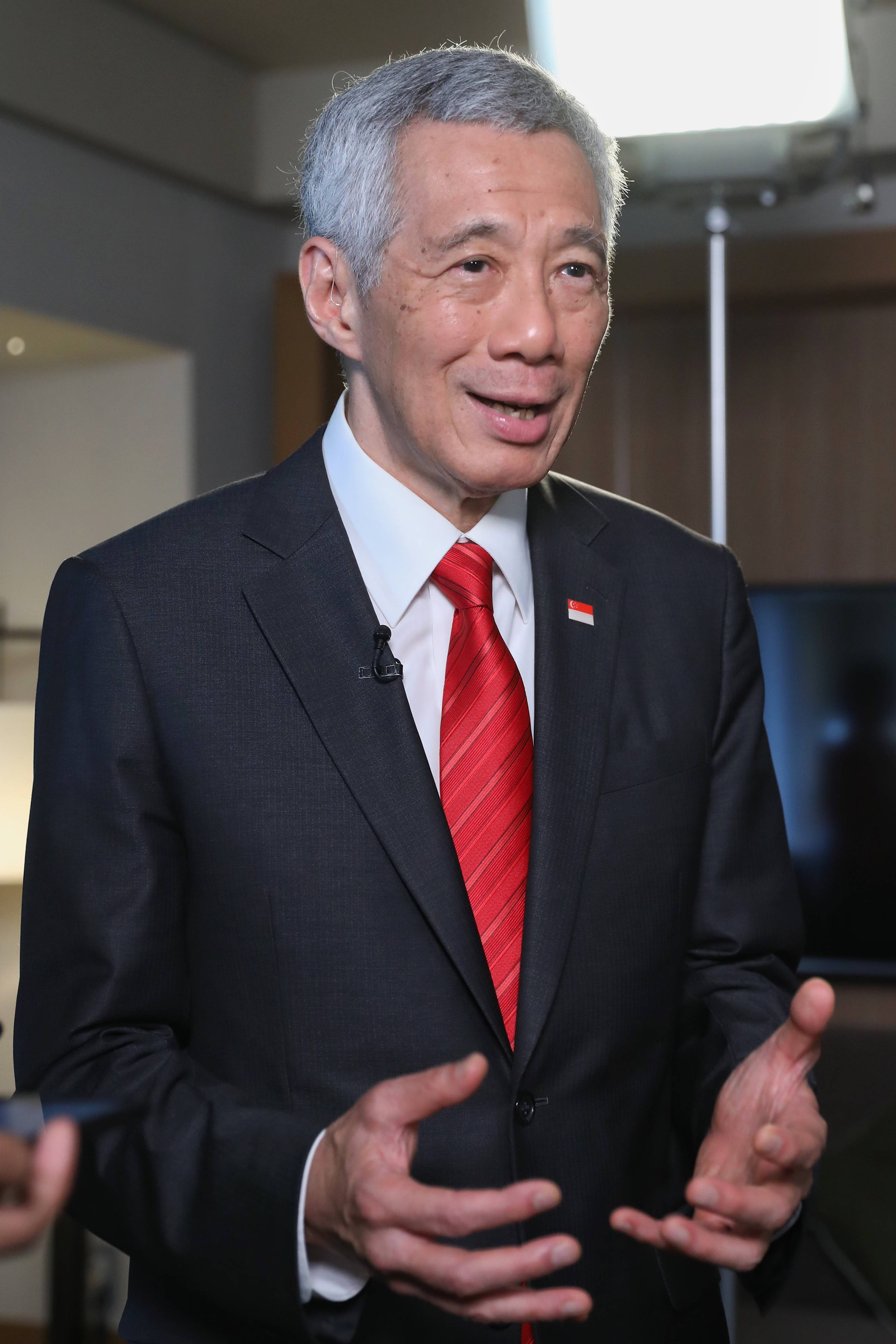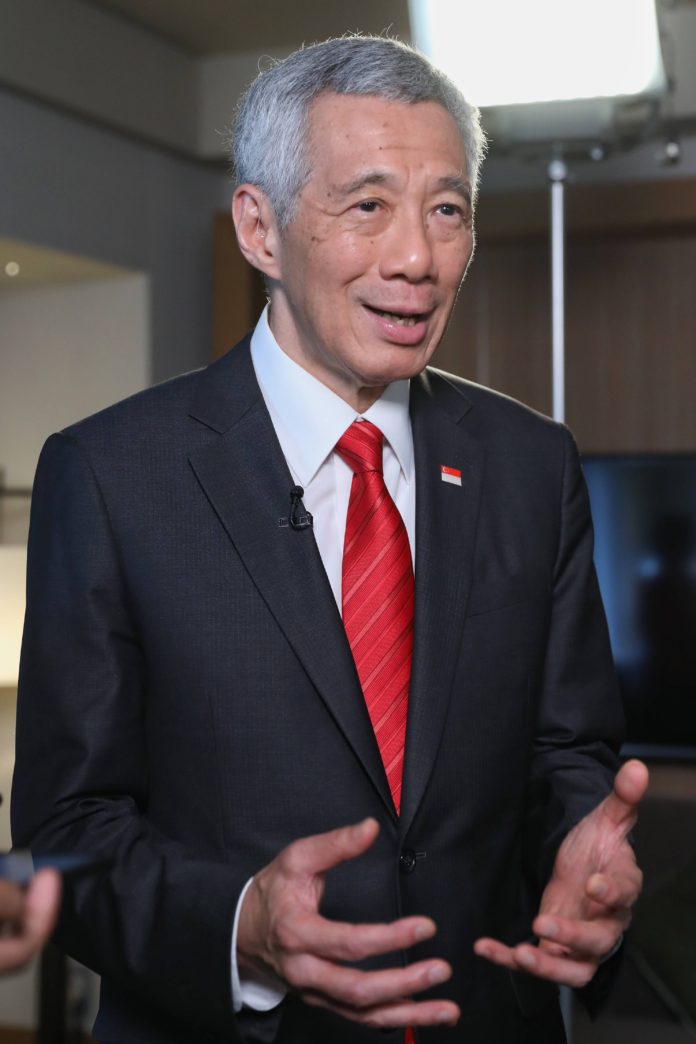OSAKA: Prime Minister Lee Hsien Loong on Saturday (Jun 29) said that it is “good news” that the United States (US) and China have decided to restart trade talks that broke down earlier this year, but there is a long way to go before the problems are solved.
Speaking to reporters shortly after the two countries’ leaders came to the agreement in a highly-anticipated meeting at the G20 Summit held in Osaka, Japan, Mr Lee acknowledged the positive development, as any understanding between them was not a given. The US also said that it will not impose further tariffs on China.
However, a period of uncertainty can be expected, PM Lee noted.
“You must expect many twists and turns along the way before some outcome is reached. Not only because the issues are complicated, but also because I think the objectives on both sides are up for tussle,” he said, on the second and last day of the summit.
Comparing this year’s summit to the one held in Buenos Aires, Argentina last year, where US President Donald Trump and Chinese President Xi Jinping had not yet started serious negotiations, Mr Lee said there has been some “hardening” of positions that will make concessions and a deal harder.
READ: Trump confirms won’t impose new tariffs on China
“Both sides have taken harder stands than was the case in Buenos Aires, where negotiations came almost to the point of concluding and then came unstuck. And so the differences have been crystallised and some of the red lines have been made more explicit,” Mr Lee noted.
If the two economic heavyweights work out an agreement that fits into an international framework instead of one that benefits just the two of them and disadvantages the rest of the world, it would be good for Singapore, Mr Lee said.
However, Mr Lee, who was present at the summit as a guest of Japanese Prime Minister Shinzo Abe, said that in a period of uncertainty over a multilateral trading system, countries need to be prepared to protect their own positions, advance their interests and speak up for themselves.
SINGAPORE HAS TO STAY STRONG INTERNALLY
Mr Lee’s comments come as data highlights the economic headwinds being felt in Singapore as the global trading environment has become more challenging as a result of the tension between the US and China. Earlier this week, the Monetary Authority of Singapore (MAS) said that economic growth forecasts for 2019 are currently being reviewed.
MAS’ managing director Ravi Menon said that Singapore’s economy has been “clearly affected” by the global slowdown in manufacturing, trade and investment.
In order to overcome the challenges that may arise from the current situation, Singapore has to make sure that its internal strength is maintained and increased, Mr Lee said.
READ: Singapore ‘must expect some fallout’ from US-China trade dispute: PM Lee

Prime Minister Lee Hsien Loong on the last day of the G20 Summit held in Osaka, Japan. (Photo: Ministry of Communications and Information)
“(This) means training our people upgrading our skills, working together as one country, and being psychologically prepared for uncertainties to come because there’ll be many twists and turns, ups and downs,” Mr Lee said.
It is also important for Singapore to work hand in hand with countries within the Association of Southeast Asian Nation and other like-minded countries like Japan to make voices collectively heard on common causes, Mr Lee added.
He also said that Singapore has to work in multilateral forums, build up institutions, support them and push for reforms where necessary to strengthen them in order to maintain an international rules-based order as best as possible.
LITTLE PROGRESS ON CORE ISSUES LIKE MULTILATERAL SYSTEM, ENVIRONMENT
His comments came against the backdrop of a summit where he said little progress was made on “core issues”.
“I do not believe that in this discussion for the G20, a great deal of forward movement has taken place on the core issues,” Mr Lee said, citing examples such as the environment and multilateral systems.
In fact, the situation has changed significantly from four or five years ago, Mr Lee said. Then, differences were on the lines of developed versus developing countries. Now, however, the divisions are even within developed countries, he added.
READ: US-China trade tensions will take time to resolve, not easy for both sides to walk back on positions: PM Lee
“America, to a large extent has gone its own way but the other countries as well, are not at one on many issues,” he said, highlighting environmental issues.
While the environment is critical to the world, the Europeans have adopted the environment as a “political flag” which they have rallied under, Mr Lee said. On the other hand, other countries are hoping to acknowledge environmental issues without having to take drastic action, he said.
He acknowledged that the problems faced are difficult to solve and that he did not expect them to be solved at G20 meetings, the hope is that countries get a sense of one another’s positions, he said.
“I think that it is still worrying that we’re not able to make significant forward progress,” he said.





